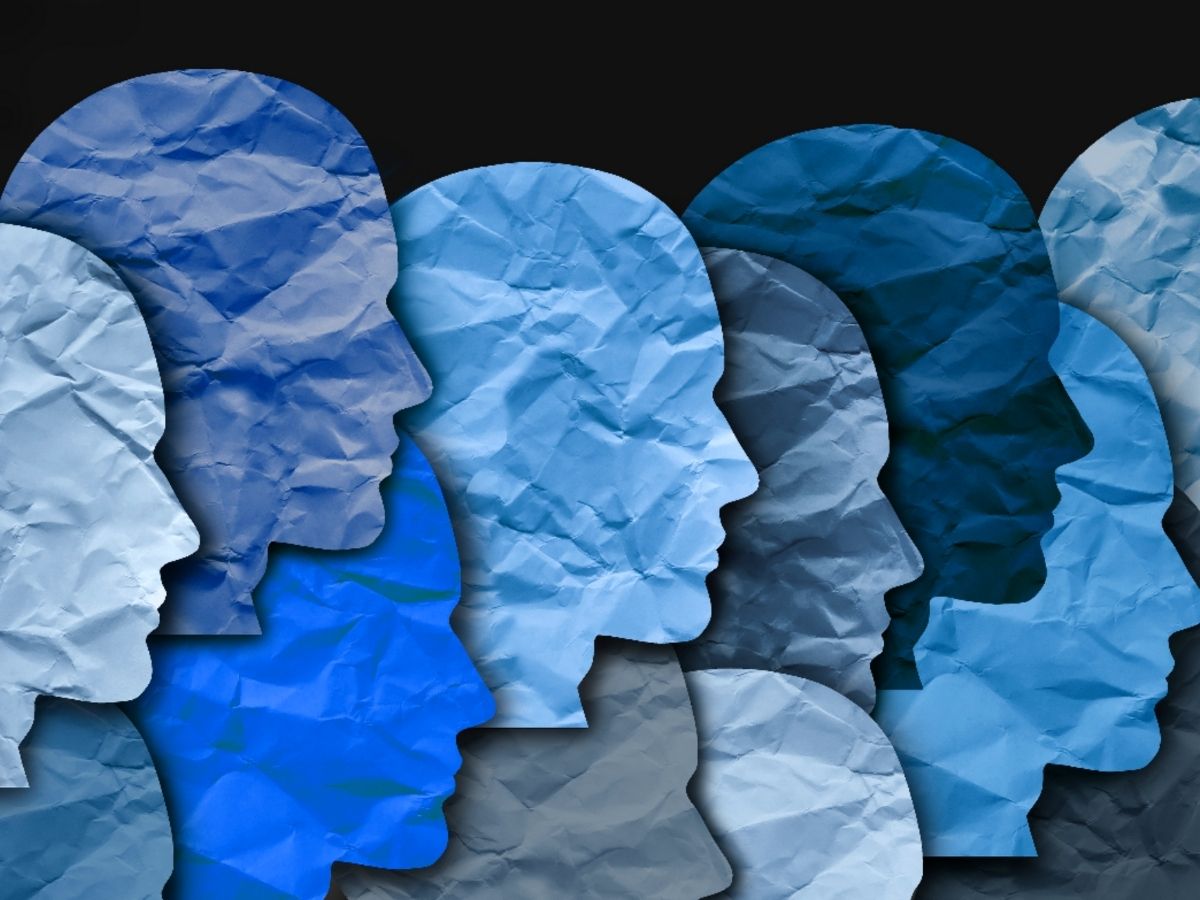READ TIME: 15m
DR JOHN DEMARTINI - Updated 4 years ago
You may have noticed that whenever I present a seminar, I mention values. This is because they are the foundation and chief driver of human behavior.
Every human being, regardless of background, gender, culture, skin color or age, lives moment by moment by a set of priorities or a set of values, things that are most to least important in their life. This “hierarchy of values” is something completely unique and fingerprint-specific to each individual.
The more important a value is – the higher it is placed on your hierarchy of values and the more spontaneous discipline and order you will tend to have associated with it.
The less important a value is – the lower it will be placed on your hierarchy of values and the less discipline and more disorder you have associated with it.
Your hierarchy of values continually evolves and changes, but at any moment, you have a set of values that you live your life by.
Click below for the video of this article. ↓
Every PERCEPTION, DECISION and ACTION you take is based on your hierarchy of values.
As such, when you come across another individual that you perceive to be supporting your highest values, you tend to open up to, or seek them. If you perceive them to be challenging your highest values, you tend to close down to, or withdraw from them.
Research into the study of values shows that when you perceive more similarities than differences in an individual you’re communicating with, you tend to open up. That's how you build rapport with people when communicating with them – you tend to find similarities and common threads.
If, on the other hand, you perceive that you have more differences than similarities with that individual, you tend to close down.
The process is similar to when you infatuate with or resent someone.
When you infatuate with someone or admire them, you’ll likely find that you have more similarities than differences.
When you resent them, you’re likely to perceive that you have more differences than similarities.
When you perceive that the people you’re communicating with support your values, they tend to become the “in-group” and you become attracted to them.
When you perceive that the people you are communicating with challenge your values, they tend to become the “out-group” and you become repulsed from them.
One is an impulse towards; one is an instinct away. One is seeking; one is avoiding.
Here’s what happens inside your brain as a result of those perceptions:
When you discover similarities and feel that your values are being supported, it activates the subcortical area of the amygdala in your brain. This results in an impulse towards them and a subjective bias that you tend to accentuate to create an attraction and adrenaline to get closer to them rapidly as if they were prey to consume.
When you are subjectively biased in a way that sees differences, the opposite occurs and you tend to want to get away from them as if they were a predator. This survival mechanism is a protective mechanism to seek prey and avoid a predator because anything that supports your values represents prey in your brain, and anything that challenges your values represents predator in your brain. So you go into a subjective bias, a survival response, to make sure you don't starve or get eaten.
In other words, whenever someone outside of you initiates either one of those responses by doing things that you perceive to be supporting your values or challenging your values, you tend to create such a polarization. This subjective bias tends to accelerate, accentuate, and opinionate you, thereby increasing your prejudice toward or away.
The amygdala in your brain can also be referred to as your “prejudice center”. Anything that supports your values, you tend to be prejudiced towards. This can be seen in a political arena, for example, when you perceive that your particular group is “right” and the other group is “wrong”. As such, you’ll tend to moralize, polarize and subjectively bias your perceptions, resulting in prejudice.
Prejudice is often associated with discriminating AGAINST, but prejudice can also be associated with discriminating TOWARDS.
You can favor people that you perceive as being more similar to you.
Parents often favor a child they believe to be easier to manage because that child is supportive of their values, as opposed to a child they believe to be more challenging.
People can also favor whom they do business with based on similarities in looks, religion, language, geography, gender, or age.
Human beings in general have their own unique forms of prejudice and subjectively biased states.
You tend to see things that support your values with confirmation biases on the positive side, and disconfirmation bias on the negative.
When you see things that challenge your values, you have a confirmation bias on the negative and a disconfirmation bias on the positive.
In other words, you likely experience a false positive on the positives when you admire them and a false positive on the negatives when you despise them. As such, you’re likely to see things that aren't there and not see things that are there.

Subjective biased prejudice can occur on a number of levels:
- POLITICAL - anyone that's similar to you in political views, you can be biased towards; and anyone that goes against your political views, you can be biased against. So, you can have a mechanism of a bias and a prejudice discrimination based on that topic.
- You could also associate combinations of variables that can result in discrimination or prejudice that could be sub-classified as racism. These can extend beyond culture, ethnicity and color to include gender or sexual orientation or preferences.
- It could be an individual’s belief systems around money, beauty, values, language, social class, disabilities, occupation, level of education, criminality, sports team affiliation, physical character traits, accent, mannerisms, the way they dress, what they drive, where they live, – in fact, anything that's similar or different can create these amygdala responses and result in subjective bias, discrimination and prejudice.
- It could also be presuppositions from past experiences - either your own or those of your mother, father, preacher, teacher, convention, tradition, or even the result of illusionary morals and ethics of your particular culture versus a different culture. Somebody from the past may have had a bias that you take on and inculcate into your experience without ever having personally experienced it.
- On the extreme, you could potentially create something you would die for when it comes to the people that support you, or a genocide when it comes to the people you perceive to go against you.
Maximum growth and development occurs at the border of support and challenge.
However, when you perceive more support than challenge or more challenge than support, you tend to be prejudiced and biased, and create opinions of people that are often distortions and exaggerations – false attribution biases. In other words, subjectively biased prejudice often result when you don’t see both sides equally.
Each human being contains all the many traits that you can ever judge in somebody, including yourself.
As such, it is wise to own all the traits - those you perceive as being positive and those you may perceive as being negative. It is wise to embrace your hero and villain within.
By becoming aware and acknowledging that you also own display at times all the traits that you see in others, you are more likely to develop reflective awareness and less likely to become subjectively bias and discriminate.
I've been teaching my two-day signature program, The Breakthrough Experience, for well over three decades and have seen thousands of people arrive with prejudices, racial issues and discriminations, and walk out having completely dissolved them.
All I do is take the behavior traits that they're judging in others and neutralize them, partially by showing them how they have each and every trait within them and how these traits they are judging are also equally serving and disserving them in their highest values.
You only judge things on the outside that represent parts of you that you're judging on the inside but may be unconscious of.
You’re often too proud or too humble to admit that what you see in others is also inside of you. At times, you may perceive that their particular trait is better or worse than yours.
Your amygdala tends to project your subjective evaluations onto people and assume that it’s reality. As such, a generalization is born.
The majority of discriminations are generalizations and not facts. Instead, they're preconceptions of what people are based on associations you’ve made in your brain.
Your subconscious mind stores all previous lopsided experiences where you’re unconsciously biased towards one side and consciously biased towards it’s opposite.
Those perceptions accumulate or stack up in your subconscious mind. But - they are not whole or objectively factual perceptions about people, instead, they are only your subjectively biased perceptions and resulting opinions about people.
These perceptions can also be compounded when you find a handful or more behaviors in another person that challenge your values - for example, their physical appearance, accent, religion and level of income.
There may also be instances where certain behaviors are discriminated against in one individual, and then a completely different set in another person.
In other words, the net sum of all the behaviors that you admire or despise, like or dislike, look up to or down on, attract or repel, that support or challenge your highest values, is going to lead you to react with a PREJUDICE TOWARDS or PREJUDICE AWAY.

There is, however, a way to balance your perceptions so that you are less likely to react with a prejudice towards or away, and can instead just open your heart to them.
It’s been shown that when you have a balanced perceptual equation, an ‘open heart’ occurs.
In The Breakthrough Experience, I teach a step-by-step process called The Demartini Method, which is a series of predefined questions that balance the mathematical equation of your perceptions.
Here are a few examples of how the Demartini Method works:
If you find that you’re infatuating with someone or resenting them, you can ask yourself:
- “ What specific trait, action, or inaction do I perceive this individual displaying or demonstrating that I admire most (that’s an impulse towards) or despise most (that’s an instinct away)?” Get very clear and specific here and be sure to write it down.
- “ Where and when do I perceive myself displaying or demonstrating that same or similar specific trait, action, or inaction that I admire or despise most?” Then own it to such a degree that the quantity and quality of what you’ve done is equal to what you see in them.
At first, you may initially react and think, “No, I don’t do that”, because you're too proud or too humble to admit what you see in others inside you. But if you actually look and hold yourself accountable to balance the equation, which I've done with over a hundred thousand people, I assure you that you only judge people on the outside for parts on the inside of you that you haven't balanced and loved.
In other words, the many people out there that you have discriminated against, are really your teachers. They are there to try to teach you how to love the parts of you that you haven't owned and loved in your life.
I love helping people realize that no one is worth putting on pedestals or in pits, but that everyone is worth putting in your heart. And that any part of them you don't have in your heart is a part you don't love in yourself.
When you are able to own all parts of yourself - the hero and villain, the virtue and vice - you are more able to master your life. Any part that you don’t own and are too proud or too humble to admit, that’s the button they can push that likely results in discrimination and prejudice toward or away as a result.
The next question in The Demartini Method is:
- “ Where and when I perceived this individual displaying or demonstrating the trait, action, or inaction that I admire most, what were the DOWNSIDES to me or others at that moment and from that moment until now?” If you despise something, it is wise to then look for the UPSIDES of the trait, action, or inaction and the benefits from that moment until now.
In doing so, you level the playing field because no behavior is anything but neutral until your subjective biases and narrow-mindedness label it because of the subconscious wounds you’ve had in the past.
Once you hold yourself accountable and find the downsides of what you perceive to be upsides, you calm down the infatuation and prejudice towards.
In the same way, once you find the benefits of what you perceive to be downsides, you are more likely to open up and less likely to discriminate.

When you open up and see that you are equals to them, you can live without fearing the loss of the behaviors you admired or fearing the gain of the behaviors you despised and you’re more able to love and appreciate them for who they are and for who you are.
You are also less likely to react to them because you are able to see people objectively. Objectivity means neutral - not polarized and not subjectively biased. This is a key outcome of learning how to apply The Demartini Method to each and every situation in your life to balance your perceptions, decisions and actions, and to move beyond racism and prejudice.
In Conclusion
- Racism is not just about color or nationality but about any of the variables I mentioned above.
- You tend to only judge things on the outside that represent parts of you that you're judging on the inside but may be unconscious of.
- Anything you don't love in the people around you is a part of the things you don't love in yourself.
- All the people out there that you discriminate against are really your teachers. They are there to try to teach you how to love the parts of yourself that you haven't owned and loved in your life.
- It is unwise to point your finger at somebody else about race when you’re displaying the same traits you see in them in your own form. You’re just not seeing it due to your subjective biases, exaggerating their forms and minimizing your forms of prejudice. I think it's wiser to find out where you do what you’re judging in them and to see how what you’re judging in them is also helping you to grow and expand in the area of your life that’s most meaningful to you.
- It is wise to own all the traits and realize that what you see in others is also in you. In doing so, you are more likely to level the playing field and have equity between yourself and other people. As such, any prejudice and discrimination will tend to melt away.
- By using quality questions such as those in The Demartini Method, you can change your PERCEPTIONS of a person or an event. As such, you can also change your DECISIONS and ACTIONS moving forwards.
Are you ready for the NEXT STEP?
If you’re seriously committed to your own growth, if you’re ready to make a change now and you’d love some help doing so, then click on the LIVE chat button bottom right of your screen and chat to us now.
Alternatively, you can book a FREE Discovery call with a member of the Demartini Team.
Interested in the Breakthrough Experience seminar?
If you’re ready to go inwards and do the work that will clear your blockages, clarify your vision and balance your mind, then you’ve found the perfect place to start with Dr Demartini at the Breakthrough Experience.
In 2 days you’ll learn how to solve any issue you are facing and reset the course of your life for greater achievement and fulfillment.
Click HERE to find out more
Important Notice:
The content shared in this blog is for education and personal development. It is not intended to diagnose, treat, cure, or prevent any psychological or medical conditions. The information and processes shared are for general educational purposes only and should not be considered a substitute for professional mental-health or medical advice. If you are experiencing acute distress or ongoing clinical concerns, please consult a licensed health-care provider.
Read full disclaimer HERE









